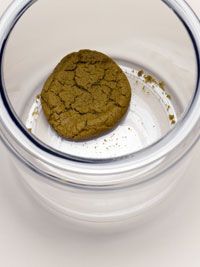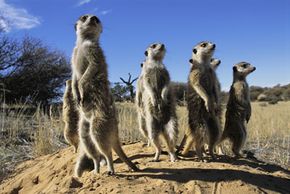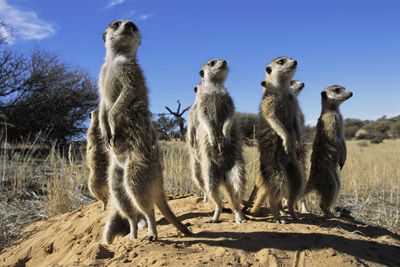You want a cookie? Just go ahead and ask. There you go. While you enjoy that cookie -- what kind is that? peanut butter? -- think about this: How'd you get that cookie? You asked for it. You communicated a desire for a delicious peanut butter cookie by simply choosing the words and stringing them together in a coherent sentence by placing the words in the correct order: "May I have a cookie?" Had you added a "please," all the better, but you could've gotten the idea across by saying "cookie" or even by just pointing at the cookie jar. But you haven't always been able to do this. When you were a baby, it was much harder to express yourself. You had limited means of communication -- screaming at the top of your lungs whenever you were unhappy and cooing when you were content.
Over time, you developed into a person who is perfectly capable of asking for a cookie, whether you use words or gestures. Speech and the ability to gesture can be lost, however, through conditions like paralysis. But communication tends to live on, despite overwhelming odds. Suffering complete paralysis after a stroke, Jean-Dominique Bauby could still move his eyes. He used them to communicate to the entire world, even writing a book, "The Diving Bell and the Butterfly." Bauby used a special program to select each letter of the memoir by blinking when his eyes settled on the letter he needed [source: NPR].
Advertisement
Communication is important throughout the animal kingdom, too. Take meerkats, for example. Like a lot of other mammals, meerkats use three methods of communication. There's nonverbal communication (or body language), sounds and scents. You probably wouldn't know exactly what point a meerkat were trying to get across if it approached you, limbs flailing wildly, chattering and emitting a terrible smell. But you'd probably figure out that the gestures were meant to intimidate you. Just imagine a human being performing the same nonverbal cues. We can learn other languages, and it turns out that we (specifically, biologists) can translate "meerkatese."
What are these furry desert animals talking about? Find out next.
Advertisement


